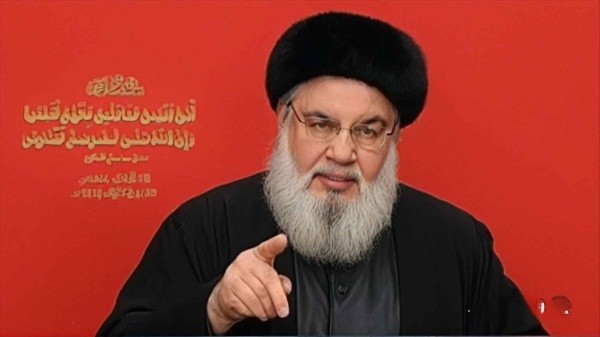Iran’s Plan to Strike Back Against the U.S.
Iran’s Military Preparations Following U.S. Attacks
Loading...

Nasrallah says attacks on communication devices are a ‘declaration of war’ by Israel and Hezbollah will retaliate.
Escalating Tensions in Lebanon
In a significant escalation of rhetoric and conflict, Hezbollah leader Hassan Nasrallah has condemned recent Israeli attacks on communication devices used by his group as a breach of “all red lines.” In his first televised address since the attacks, which resulted in the deaths of at least 37 individuals and injuries to over 2,900, Nasrallah vowed that Hezbollah would retaliate against Israel, emphasizing the group's unwavering support for Palestinians in Gaza.
The attacks, which occurred over two days, have heightened fears of a broader conflict between Hezbollah and Israel, following nearly a year of intermittent skirmishes along the border. Nasrallah characterized the assaults as a “big blow in terms of security and humanity,” but insisted that they would not weaken Hezbollah's resolve or operational capabilities.
A Call to Arms
During his address, Nasrallah labeled the explosions a “terrorist act” and a “declaration of war” against Lebanon's sovereignty. He acknowledged the unprecedented nature of these attacks, stating they were unlike anything seen in the history of the resistance movement in Lebanon. Despite the severity of the situation, he reassured supporters that Hezbollah's command structure and infrastructure remained intact, claiming that many of the targeted devices were either turned off or out of service at the time of the attacks.
The blasts targeted civilian areas, including hospitals, markets, and homes, raising concerns about the indiscriminate nature of the violence. Nasrallah accused Israel of deliberately aiming to inflict maximum casualties, stating that the attacks were designed to kill as many people as possible.
Israel's Military Posture
In response to the ongoing conflict, Israeli officials have ramped up warnings of a potential large-scale military operation against Hezbollah. They assert that such measures are necessary to ensure the safety of Israeli citizens living near the Lebanese border. As Nasrallah spoke, Israeli jets conducted sonic booms over Lebanon, further escalating tensions in the region.
The Israeli military has confirmed that two soldiers were killed in retaliatory attacks by Hezbollah in northern Israel, marking a significant development in the ongoing hostilities. The Israeli army has also announced new strikes on Hezbollah targets in Lebanon, aimed at degrading the group's military capabilities.
The Path Forward
Political analysts suggest that the situation is poised for further escalation. Marwan Bishara, a senior political analyst at Al Jazeera, noted that while Nasrallah remains defiant, the recent attacks represent a significant setback for Hezbollah. He emphasized that the group's response will be closely watched in the coming days and weeks.
Despite the uncertainty surrounding Hezbollah's next moves, analysts like Sultan Barakat pointed out that Nasrallah's speech did not provide clear indications of how or when the group would retaliate. Instead, it seemed to serve as a message of resilience, portraying a “partial win” for Hezbollah despite the recent losses.
Conclusion
As the conflict continues to unfold, the international community watches closely. The recent escalation between Hezbollah and Israel underscores the fragile nature of peace in the region and the potential for a broader conflict that could have devastating consequences for both sides. Nasrallah's commitment to supporting the Palestinian cause, regardless of the sacrifices involved, signals that Hezbollah is prepared to intensify its involvement in the ongoing crisis, further complicating an already volatile situation.
Editor
Iran’s Military Preparations Following U.S. Attacks
Troops remain in five strategic locations, raising fears of renewed tensions and long-term occupation.
Opposition forces have taken control of the capital after a significant offensive. Here is how it unravelled.
